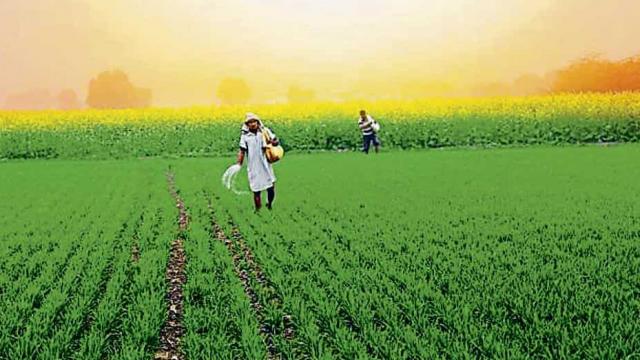Explained: Pradhan Mantri Annadata Aay SanraksHan Abhiyan
Union Cabinet recently approved new umbrella scheme “Pradhan Mantri Annadata Aay SanraksHan Abhiyan” (PM-AASHA) to give major boost to pro-farmer initiatives of Government. The Scheme is aimed at ensuring remunerative prices to e farmers for their produce as announced in Union Budget for 2018.
The scheme was launched in keeping with Government’s commitment and dedication for Annadata. It will help to protect farmers’ income which is expected to go long way towards the welfare of farmers. Government has already increased the MSP of kharif crops by following the principle of 1.5 times the cost of production. It is expected that the increase in MSP will be translated to farmer’s income by way of robust procurement mechanism in coordination with the State Governments.
Three Components of PM-AASHA
- Price Support Scheme (PSS).
- Price Deficiency Payment Scheme (PDPS)
- Pilot of Private Procurement & Stockist Scheme (PPPS).
Price Support Scheme (PSS)
Under it physical procurement of pulses, oilseeds and copra will be done by central modal agencies with proactive role of state governments. NAFED, Food Cooperation of India (FCI) will also take up PSS operations in states and districts. The procurement expenditure and losses due to procurement will be borne by Union Government as per norms.
Price Deficiency Payment Scheme (PDPS)
It will cover all oilseeds for which minimum support price (MSP) is notified. Pre-registered farmers will be direct paid difference between MSP and selling or modal price for his produce in notified market yard through transparent auction process. All payments under it will be done directly into registered bank account of farmers. It will involve any physical procurement of crops as farmers are paid difference between MSP price and sale or modal price on disposal in notified market. Central Government’s support of central government for PDPS will be given as per norms.
Pilot of Private Procurement & Stockist Scheme (PPPS)
It will allow participation of private sector in procurement operation needs on pilot basis. Learnings from these outcomes will help to increase ambit of private participation in procurement operations. Initially it will be applicable for procurement of oilseeds. States will have option to roll out this scheme on pilot basis in selected districts and APMCs of district involving participation of private stockiest.
The pilot district and selected APMCs will cover one or more crop of oilseeds for which MSP is notified. The scheme shall substitute PSS/PDPS in pilot districts as it is similar to PSS scheme and involves physical procurement of notified commodity. The selected private agency will procure commodity at MSP in notified markets during notified period from registered farmers in accordance with PPSS Guidelines, whenever prices in market fall below notified MSP and whenever authorised by state/UT government to enter the market. The maximum service charges up to 15% of the notified MSP will be payable.
Existing Procurement Schemes
Moreover, other existing schemes of Department of Food and Public Distribution (DFPD) for procurement of paddy, wheat and nutri-cereals or coarse grains and Ministry of Textile for cotton and jute procurement will be continued for providing MSP to farmers for these crops.

Month: Current Affairs - September, 2018


